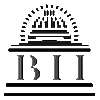University
of British Columbia, in collaboration with BetaLogics Venture, a division of
Janssen Research & Development, LLC, has published a study highlighting a
protocol to convert stem cells into insulin-producing cells. The new procedure
could be an important step in the fight against Type 1 diabetes. The protocol
can turn stem cells into reliable, insulin-producing cells in about six weeks,
far quicker than the four months it took using previous methods. The protocol
transforms stem cells into insulin-secreting pancreatic cells via a
cell-culture method. The conversion is completed after the cells are
transplanted into a host. An important next step for UBC researchers and their
industry collaborators is to determine how to prevent the insulin-producing
cells' from being rejected by the body.
Advances over the last decade suggest that
generating functional beta-cells from human PSCs is achievable. However, there
are aspects of beta-cell development that are not well understood and are
hampering generation of PSC-derived beta-cells. In particular, the signaling
pathways that instruct endocrine progenitor cells to differentiate into mature
and functional beta-cells are poorly understood. Other significant obstacles
remain, including the need for safe and cost-effective differentiation methods
for large-scale generation of transplantation quality beta-cells, methods to
prevent immune rejection of grafted tissues, and amelioration of the risks of
tumorigenesis. Transplantation of pancreatic progenitors or insulin-secreting
cells derived from human embryonic stem cells (hESCs) has been proposed as a
therapy for diabetes. Stage (S) 7 cells expressed key markers of mature
pancreatic beta cells, including MAFA, and displayed glucose-stimulated insulin
secretion similar to that of human islets during static incubations in vitro.
Additional characterization using single-cell imaging and dynamic glucose
stimulation assays revealed similarities but also notable differences between
S7 insulin-secreting cells and primary human beta cells. Nevertheless, S7 cells
rapidly reversed diabetes in mice within 40 days, roughly four times faster
than pancreatic progenitors. Therefore, although S7 cells are not fully
equivalent to mature beta cells, their capacity for glucose-responsive insulin
secretion and rapid reversal of diabetes in vivo makes them a promising
alternative to pancreatic progenitor cells or cadaveric islets for the
treatment of diabetes.
BY:-
BII Noida






